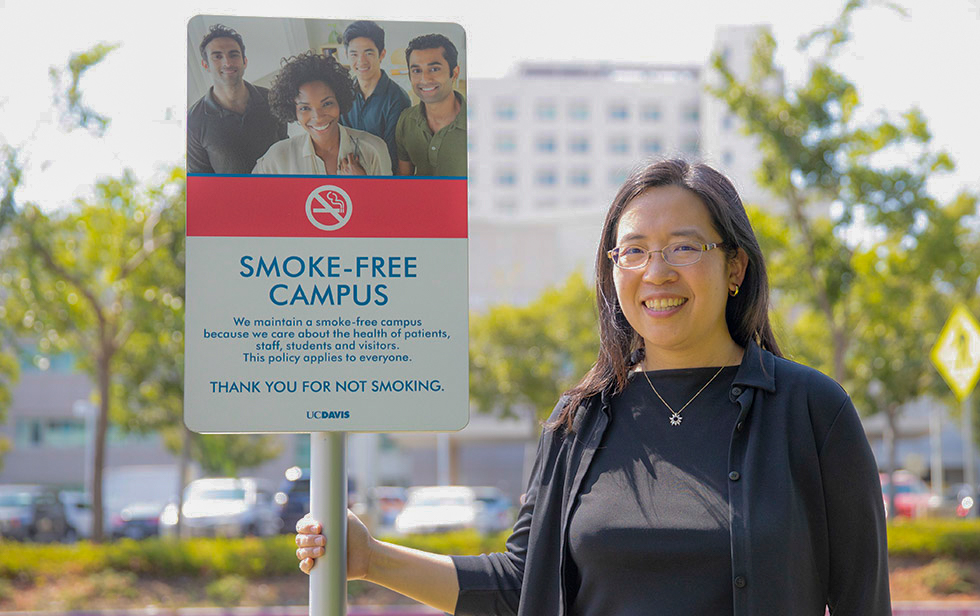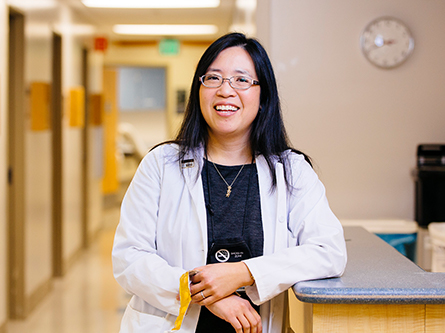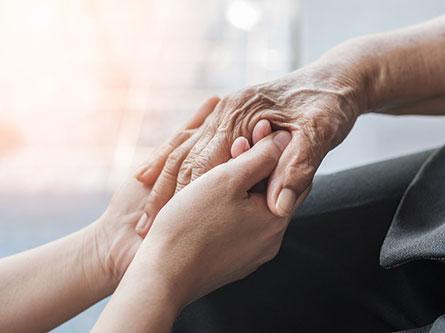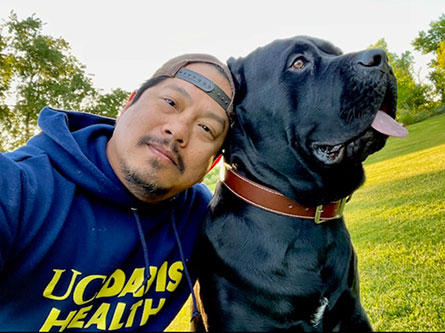Calling it quits: Through motivation and support, she helps people quit tobacco
Elisa Tong says helping people quit tobacco is one of her favorite things to do. She and her colleagues provide that extra push and encouragement many patients need to get them on the right track toward a healthier life.
“I tell my patients helping people quit tobacco is one of my favorite things to do, and stopping tobacco is one of the best things they can do for their family and their own health.”
Elisa Tong speaks with the passion for helping others. She knows that as a leader of UC Davis Health’s tobacco cessation program, she has the power to positively impact many lives.
“Often, people tell us they know using tobacco is not good for them, but they are under stress or feel they cannot change and have failed,” Tong said. “As a provider, I know my advice can help motivate and support someone.”
The magic of SToP
Tong is the medical director for UC Davis Comprehensive Cancer Center’s Stop Tobacco Program (SToP). She along with the SToP team, including nurse program manager Terri Wolf and Cari Shulkin in Health Management and Education, promote two programs to help people quit smoking.
The first is a group class series or 2-hour workshop (now available online) run by Shulkin, a nurse and certified tobacco treatment specialist known for her support and encouragement. She has been leading the class for over 10 years.
The second is a one-on-one telephone counseling quitline called the California Smokers’ Helpline, operated by UC San Diego for nearly 30 years. This free service supports people to stop smoking or vaping and is available in a variety of languages and methods of communication.
In addition, a new study led by Tong offers two weeks of free nicotine patches for eligible adult callers in California to incentivize them to call the Helpline, while supplies last. The overall grant seeks to develop implementation strategies with the Helpline and is funded by University of California’s Tobacco-Related Disease Research Program.
“These programs to quit tobacco can help provide more in-depth support outside of the doctor’s office for people to identify their triggers, motivations, and opportunities to change their daily routine,” Tong said.
Tong has seen the impact these programs can have as people work to overcome heavy obstacles. She witnessed that with UC Davis Health patient Buster Halcomb.
“I was told, ‘This patient has smoked a long time and will never quit; don’t bother trying.’ But I asked him his thoughts about quitting,” Tong explained. “Surprisingly, that day he was motivated because his first grandchild was about to be born. He knew he wouldn’t be able to hold her unless he stopped. We had both programs (the quitline and the group class) call him that day. It’s so beautiful to see him hold his grandbaby.”
Thanks to funding from the National Cancer Institute, the SToP team was launched as a way to integrate tobacco treatment into cancer care, which can make a difference in better treatment outcomes and survival. There are 12 tobacco-related cancers, and quitting can help with better healing, less infections, and less side effects from medications. The SToP team is working with UC Davis Comprehensive Cancer Center staff and their patients to provide support throughout cancer care and into survivorship.

Promoting positive change in California
Nearly 9 out of 10 cigarette smokers first try cigarette smoking by age 18, according to the Centers for Disease Control and Prevention. Although more than 3 out of 5 U.S. adults who ever smoked have quit, vaping is a growing concern for youth and the recent lung injury outbreak mostly affecting young adults. The Surgeon General’s 2020 Smoking Cessation report emphasizes that smoking cessation at any age is beneficial, and the medications and counseling support can increase the likelihood of success.
Tong added that these types of support programs are so important for those struggling with tobacco addiction.




